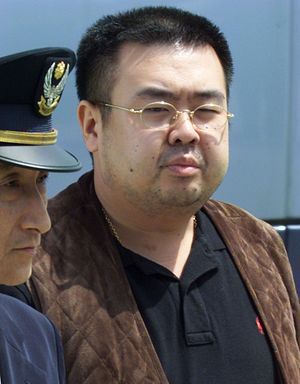On Tuesday, reports emerged in South Korean media that Kim Jong-nam, North Korean leader Kim Jong-un’s older half-brother, had been assassinated by two unknown women in Malaysia’s Kuala Lumpur International Airport.
Reports were subsequently confirmed by Malaysian authorities, who noted that Kim had been using a passport under a pseudonym and was slated to fly to Macau, where he lived.
According to Malaysian newspaper reports citing local authorities, Kim was killed by an unidentified woman who covered his face with an unknown liquid that reportedly caused burns to Kim’s eyes. Malaysian authorities have not identified the suspected assassin, but have started an investigation.
“So far there are no suspects, but we have started investigations and are looking at a few possibilities to get leads,” Fadzil Ahmat, chief of the Selangor Criminal Investigation Department, told Reuters. U.S. government sources have also told Reuters that they believe Jong-nam was assassinated in Kuala Lumpur and blame North Korea.
Speculation and rumors surrounding Kim Jong-nam’s killing are rapidly swelling, despite any concrete evidence as to why Jong-nam was killed now. The idea that Kim Jong-nam would be targeted for assassination isn’t new in itself. He had fled Macau in 2012, fearing an attempt on his life. As former leader Kim Jong-il’s oldest son, Jong-nam has been said to represent an alternative locus of legitimacy — if not power — within North Korea, where rumblings persist that Kim Jong-un’s power consolidation project remains incomplete.
Indeed, Thae Yong-ho, the highest profile North Korean defector in recent history, hinted recently that Kim Jong-un’s leadership was in trouble, saying, “The traditional structures of the North Korean system are crumbling.” Since Thae’s defection, North Korea has been especially sensitive to the prospect of other high-level defectors.
One of the factors motivating Jong-nam’s assassination, thus, could have been an expectation that he could be enticed to defect to South Korea. North Korea accused South Korea of committing an act of “political terror” by encouraging defectors in December 2016. Certainly, this would help explain why he was assassinated now after being relatively ignored since the 2012 assassination attempt.
In 2013, Kim Jong-un famously had his uncle Jang Song-thaek dismissed from government and executed. Jang, as the vice chairman of the power National Defense Commission, had been a virtual “number two” to Kim and was close to China, North Korea’s longtime benefactor.
Kim Jong-nam is the oldest son of former North Korean leader Kim Jong-il and Song Hye-rim, one of the elder Kim’s mistresses who was South Korean-born.
Once seen as the favored heir to Kim Jong-il, Kim Jong-nam’s chances at leading North Korea are thought to have ended after he was caught in Japan in 2001 with a false passport, trying to surreptitiously visit Tokyo Disneyland. Some analysts suggest that Kim Jong-il instead decided to groom Jong-un for succession after his 2008 stroke because he favored his younger son’s mother, Ko Young-hee. (Kim Jong-il also had another son with Ko, Kim Jong-chol.)
One year before his half-brother’s accession to North Korea’s leadership after Kim Jong-il’s December 2011 death, Kim Jong-nam had told Japan’s Asahi that he opposed “dynastic succession.” Jong-nam’s death comes two days before Kim Jong-il’s birthday anniversary, which is on Thursday.
Jong-nam is survived by his son, Kim Han-sol, who is currently a college student in France and has been under police protection since 2013.

































